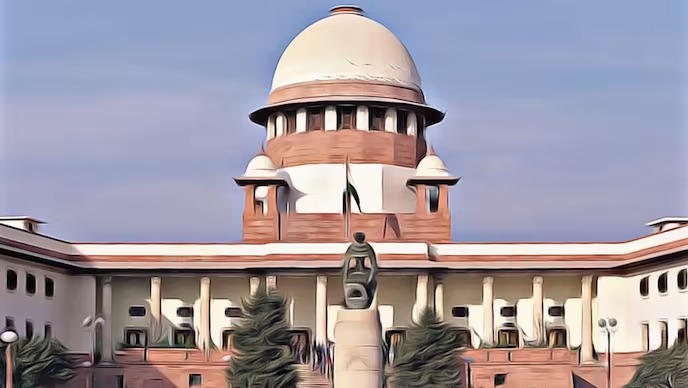Challa Kodanda Ram, J.@mdashThis writ appeal is filed against the order of the learned Single Judge in W.P. No. 21173 of 2008, dated 30-07-2013, directing the appellant bank to extend the benefit of pension to the writ petitioner-respondent under the State Bank of Mysore Employees (Pension) Regulations, 1995.
2. The admitted facts are that the writ petitioner is the wife of late P. Munaswamy, who had worked in the appellant bank from 01-05-1958 to 17-03-1991 and died while in service on 17-03-1991. On 30-06-1992, the appellant bank settled his provident fund and other benefits. Thereafter, the pension scheme came to be notified and came into effect from 01-11-1993 with retrospective effect from 1986. It is not in dispute that in normal circumstances, the benefit of pension rules can be availed by the writ petitioner. The writ petitioner came to know of the pension scheme and approached the appellant bank by letter dated 29-11-1999 seeking extension of pension scheme. In that regard, the President of the State Bank of Mysore Pensioner''s Association also made a representation on 26-09-2000. As no response was forthcoming from the appellant-bank, a legal notice dated 11-11-2006 came to be issued by the writ petitioner. In response to the said legal notice, on 14-11-2006, the Chief Manager (PGP) had replied denying extension of pension scheme to the petitioner on the ground that she had not exercised the pension option and also not complied with the conditions of the pension scheme by refunding the bank''s contribution of the provident fund along with interest within the stipulated period, and accordingly, rejected the request of the petitioner. Being aggrieved by the said rejection, the petitioner filed W.P. No. 21173 of 2008, which was allowed by the learned Single Judge. Challenging the order of the learned Single Judge, the State Bank of Mysore preferred the present writ appeal.
3. Learned counsel appearing for the appellant-bank would submit that in terms of the conditions of pension scheme, an employee''s legal representatives have to exercise the option within a period of four months reckoned from 01-04-1994. This aspect was notified by the Bank through a general Circular No. 025/94-95 dated 01-06-1994. Inasmuch as no option has been exercised by the writ petitioner within the stipulated time, she has made herself ineligible for extension of the benefits under the pension scheme. To buttress his contention, he would rely on the judgments of the Hon''ble Supreme Court reported in
4. On the other hand, the learned counsel for the writ petitioner-respondent would submit that the petitioner is an illiterate woman residing in a remote village and at no point of time, there was any intimation or communication made by the bank informing the retired employees or their legal heirs about the pension scheme and if only she had been put on notice about the availability of such beneficial scheme, there would not have been any difficulty in her exercising option and also complying with the conditions of the Scheme. He would further submit that the husband of the respondent was also a low paid employee and retired as an Attender after serving about 33 years with unblemished record and there is no justifiable reason for denying the benefit of the pension scheme to the writ petitioner.
5. A closure scrutiny of the Scheme, which contains 9 chapters with 28 clauses and VII annexures, would reveal that in annexure III under the heading Minutes of the Meeting of the Small Committee on pension held on 26-03-1994, clause 4 reads as under:-
Employees who were in service as on 1.11.1993 but who are since deceased, their family/dependant may be given the option to opt for pension as also the benefit of commutation of pension.
6. A reading of clause 4 would indicate that in the cases where employees, who were in service as on 01-11-1993 but who are since deceased, their family/dependants may be given an option to opt for pension as also the benefit of commutation of pension. So far as the employees, who are in service, are concerned, the exercising option in their cases would pose no problem. However, in the cases of dependant family members of the deceased unless they are notified, there would be no way for such persons becoming aware of the schemes of the nature being introduced. It would be unreasonable to expect the dependant family members of the deceased employees to keep track of the happenings in the appellant organization from time to time. Further, considering the fact that the writ petitioner being an uneducated lady, who hails from rural background, non-compliance within the stipulated time notified in the scheme, which remained un-communicated, cannot be found fault and on that ground, availment lot the beneficial scheme which has been evolved by the appellant bank cannot be denied.
7. In this context, we may refer to the judgment of the Hon''ble Supreme Court reported in
8. Applying the principle laid in the above referred judgment and particularly in the light of Clause 4 of Annexure-III, we have no hesitation to hold that there was a duty cast on the appellant bank to issue individual notices in the cases of family dependent members of the deceased-employees asking for their option.
9. In that view of the matter, we deem it appropriate to direct the appellant to extend the benefit of pension scheme with effect from the date from which the writ petitioner-respondent had made an application i.e., 29-11-1999 indicating her option to receive pension. Inasmuch as compliance with the conditions of the pension scheme is held to be mandatory by the Hon''ble Supreme Court, we make it clear that the writ petitioner-respondent would need to comply with the refund of the bank''s contribution to provident fund with 6% interest. On such compliance alone, the benefit of the scheme can be availed by the writ petitioner. The amount of bank''s contribution to the provident fund has been crystallized by the appellant bank itself as Rs. 36,775.05 through its reply notice to the respondent dated 14-11-2006. Inasmuch as the amount of Rs. 36,775.05 is not disputed, the writ petitioner shall refund banks contribution to provident fund i.e., Rs. 36,775.50, within eight weeks from the date of receipt of a copy of this order. On such refund, the writ petitioner-respondent would be entitled to avail the benefit of pension scheme with effect from 29-11-1999, the date of her first representation. The writ petitioner-respondent being an illiterate woman, it is needless to observe that the appellant bank would be duty bound to guide and give assistance to the petitioner as may be required to enable her to avail the benefit of the pension scheme.
10. The writ appeal is disposed of and the order of the learned Single Judge is modified to the extent indicated above. Six weeks'' time is granted for the appellant bank to comply with the Scheme and to operate the scheme after the writ petitioner complies with the conditions of the Scheme and the conditions laid down in the present order. No order as to costs. Miscellaneous Petitions, if any pending, shall stand closed.

